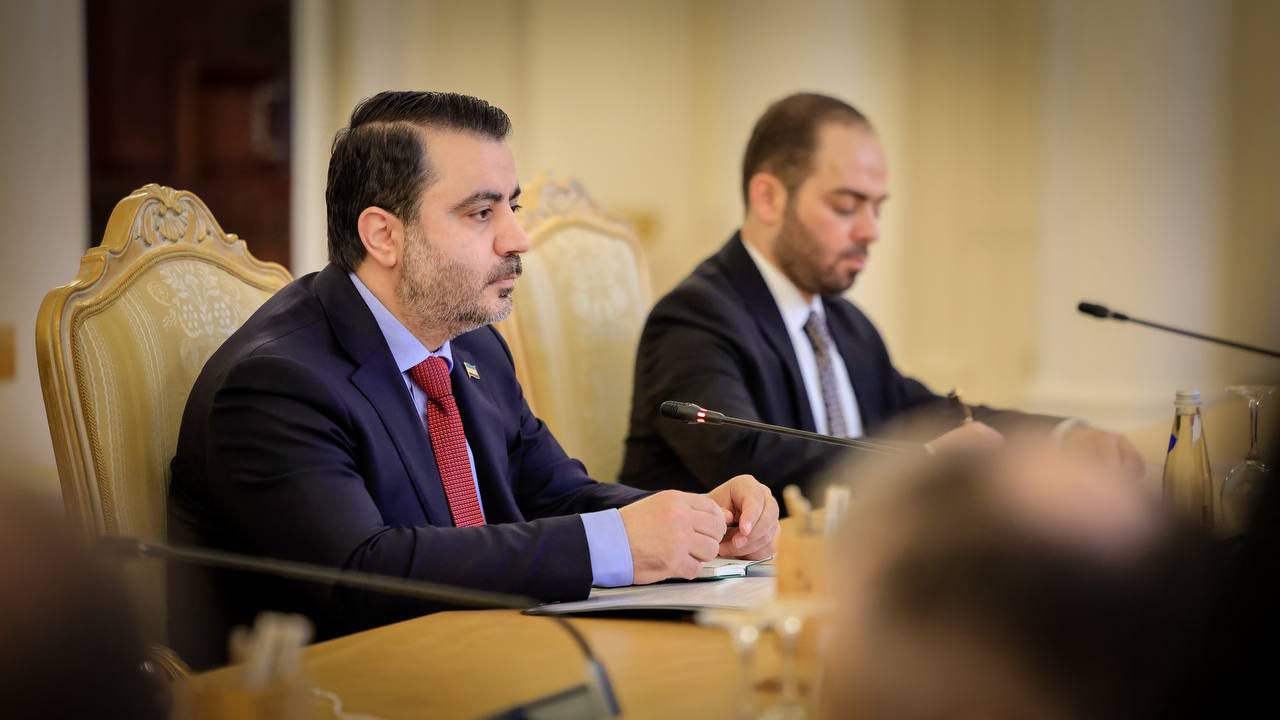In his first official visit to Moscow following the major political transition in Damascus and the fall of former President Bashar Assad’s regime, Syrian Foreign Minister Asaad al-Shaibani has embarked on what has been described as a “critical round of talks” with his Russian counterpart, Sergey Lavrov. The aim: to redefine bilateral relations between Damascus and Moscow on new foundations.
During a joint press conference in the Russian capital, al-Shaibani emphasized Syria’s aspiration to build “a new and proper relationship” with Russia, one based on mutual respect and genuine cooperation, moving beyond decades of a partnership largely defined by military and security interests.
“We are entering a phase of reconstruction, and we need all partners … This is a pivotal moment in Syrian-Russian relations, and we are looking forward to comprehensive Russian cooperation to support transitional justice in Syria,” said al-Shaibani. He announced the formation of two joint committees to review all previous agreements, emphasizing that “a new chapter has begun” and that Russia can play a central role in Syria’s postwar reconstruction.
Dr. Nizar Abdul Karim, a professor of international relations based in Damascus, told The Media Line that the visit represents “a test for Moscow rather than a declaration of partnership.” Describing al-Shaibani’s visit as an “early test of Russian intentions,” Abdul Karim noted that Russia is fully aware that its relationship with Damascus is no longer what it was under Assad and must now be recalibrated accordingly.
“What’s happening now is not a reinforcement of an old alliance, but a renegotiation of it. Moscow could be a potential partner in reconstruction, but it is also required to provide assurances that it will support Syria’s transition toward a more balanced state—both internally and externally—rather than remaining a patron to a subordinate regime,” he said.
Abdul Karim pointed out that the move to review prior agreements signals al-Shaibani’s intent to distance Syria from the historically unequal dynamic that had long shaped the Damascus-Moscow relationship, particularly in military affairs.
On the other hand, Laila Hammoud, a political analyst based in Berlin, told The Media Line: “Damascus still needs a Russian umbrella amid fragile power dynamics.” Hammoud argues that talk of a “new relationship” may be premature, given Syria’s ongoing transitional phase.
“Russia remains a key player in the Syrian scene. Without its position at the UN Security Council, the regime transition in Damascus wouldn’t have unfolded as smoothly. Al-Shaibani knows that Syria cannot rebuild or address its security challenges without strategic partnerships—Russia foremost among them.” She further noted that the shift in Syrian rhetoric toward Moscow does not necessarily signal a fundamental change in the balance of power. “This seems more like a realignment of the relationship, not a disruption of its long-standing core,” Hammoud said.
For his part, Lavrov reaffirmed Moscow’s commitment to a unified Syria, stating that “Israel has violated UN resolutions concerning Syria,” and stressing the importance of preserving Syria’s territorial integrity.
“Russia does not want Syria to become a battlefield for international conflict, but rather a stable state where reconstruction is possible and refugees can return,” he said.
Lavrov also called for the full lifting of Western sanctions on Syria, describing recent US steps in that direction as “positive.” He extended an official invitation to Syrian President Ahmed al-Sharaa to attend the upcoming Russia-Arab Summit in Moscow this October.
On the domestic front, al-Shaibani reaffirmed the Syrian government’s commitment to representing all citizens, stating: “We do not believe in the terms ‘majority’ and ‘minority.’ There are foreign attempts to incite sectarian strife, and we categorically reject them.”
Addressing the situation in As-Suwayda, he emphasized that the state must assume responsibility for security and the protection of civilians, adding: “Protecting the Druze community is the responsibility of the Syrian government.”
These remarks reflect a noticeable shift in Damascus’s approach to minority affairs and decentralization, marking a departure from past rhetoric.
Between Moscow’s assurances of support and the Syrian government’s efforts to establish more balanced foreign ties, the next phase appears decisive in shaping the future of Syrian-Russian relations.
Despite the optimistic tone, key questions remain: Does Damascus have the political and economic independence to reorient its foreign alliances amid the weight of historical dependencies? And can Moscow reposition itself in Syria as a civil and developmental partner rather than a mere military backer?
